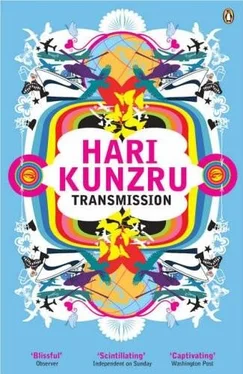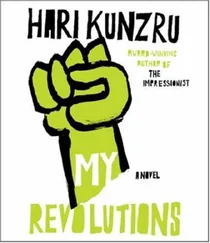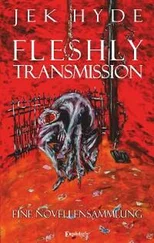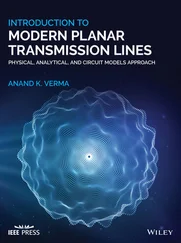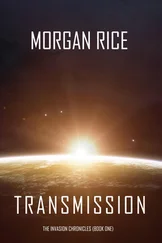The hotel was a glass wave, sprawling along an artificial beach whose white sand, as Abdullah proudly pointed out, had been imported from the Caribbean. The car door was opened by a Filipino dressed in dusky pink plus fours, a pink argyle jumper and an oversized urchin cap. Pinned to his chest was a badge which identified him as Gary. By his side was Carolyn, a Singaporean woman dressed as a pink explorer, complete with rose-coloured pith helmet. Together they showed Guy and Abdullah into the lobby. Once Guy had checked in, a time-consuming process because of a fault in the hotel’s reservations system, Abdullah handed him his business card and told him he would return in the morning to drive him to his meeting with Mr Al-Rahman. In the meantime, he was to make himself comfortable in his room. Abdullah’s politenesses had an odd way of sounding like orders. When he read the full name on the card, Guy understood the reason for this. Abdullah bin Osman Al-Rahman was no ordinary junior driver. This was obviously a family which liked its younger members to start at the bottom.
The lift took Guy and a pink South Asian bellhop ( Bruce ) to the twentieth floor. Once he had found his room and got rid of Bruce, he slung his stuff on the bed and switched on the TV. Almost at once there was a knock at his door. Doug, a dark-skinned young man who was perhaps Indonesian, arrived with a plate of fruit. Would there be anything else? Guy didn’t think so. A minute later there was a second knock. Calvin with a spare bathrobe. Then came Keiran to fluff his pillows. Always they ended with a direct look in the eyes and the same question: ‘Is there anything else I can do for you?’ Guy told himself he was imagining things. After the fourth time he stopped answering the door.
The phone went and a voice asked whether his accommodation was to his satisfaction. For a moment he thought it was another room-service rent-boy, until the voice identified itself as Abdullah and asked his shoe size. He told him. It was only after he put the receiver down that he thought to wonder why.
With a choice of seventeen restaurants (Lebanese, Argentinian, the Viennese Café, the Dhow and Anchor British Pub…) he somehow ended up eating at the Main Street USA Bar and Grill, where it was New Orleans week. The space was hung with bunting, and in the centre of the room was a two-thirds scale model of a Mississippi riverboat. He sat down at a little table and Carey-Ann, who was maybe Chinese and was dressed as a pink Norman Rockwell soda jerk, gave him a menu. He chose the gumbo and looked around. A group of elderly men in Hawaiian shirts were crammed with their instruments on to a corner stage, playing light jazz funk. Above them a sign read Retail This Way, which for a brief moment he mistook for the name of the band.
Around him was a landscape of small round tables, each occupied by a shirtsleeved businessman. In front of each businessman was a cellphone, a menu and a tall glass of juice topped with a cocktail umbrella and a pair of jaunty straws. Guy ate his gumbo and watched the row of Caribbean palms outside the window. Afterwards, in his brightly lit bathroom, he took twenty milligrams of a prescription sedative and got an early night, falling unconscious to the jabber of a rolling news channel on the TV.
The next morning he was woken by a knock on his door. He put on his bathrobe and let in Burt, who had brought him a wrapped rectangular box ‘courtesy of Mr Al-Rahman’. Yawning, Guy opened it to find a pair of golf shoes and a leaflet drawing his attention to certain of their technical features, which included a temperature-responsive waterproof membrane and a visible-heel air-sole unit. The sight of the shoes sent his guts into immediate spasm, and he took Abdullah’s morning call from a doubled-up position on the toilet.
‘But you don’t seem to understand. I have visuals. There’s a PowerPoint presentation. For God’s sake, there are hand-outs. How am I supposed to do hand-outs on a golf course?’
Abdullah said that his uncle was a man who loved golf above all things, and pointed out that the choice of venue was appropriate to the nature of the conversation. There was no way Guy could object.
Bouncing around in the cart, he reflected that at the end of the day, all factors being taken into consideration, this was Yves Ballard’s fault. When setting up Tomorrow * Guy had felt inclined to stick to what he knew: to pitch for British youth-sector business and maybe reach out occasionally into alternative demographics. Instead, Ballard and the other Transcendenta partners had pushed him in a different direction. There had been a reception in Barcelona, with canapés in the shapes of dotcom logos and waiters dressed as Antonio Gaudí. He had stood at a pool-side bar, and they had asked him to imagine a truly globalized branding agency, concentrating on the local needs of transnational clients. If Tomorrow * placed itself at this node, it would potentiate the synergetic emergence of something, thus maximizing feedback in something else and placing everyone at the apex of a place they all wanted to be. They stood, they told him, on the crest of the latest Kondratiev Wave. Transcendenta, nine months old, was already valued in the hundreds of millions. Who was Guy to argue? So instead of being wedged in a West End toilet cubicle with a couple of nightclub PRs, he now found himself on the other side of the world, being driven around in an unstable electrical vehicle by a rich kid with a death wish. About to play golf.
Two men were waiting for them at the first tee, both dressed in immaculate Prince of Wales checks. As the cart skidded to a halt, Guy was almost blinded by a glint from the elder one’s wrist, which resolved itself on closer inspection into a diamond-encrusted Rolex Oyster watch. Muammar bin Ali Al-Rahman, a heavy-set man in his sixties, shook Guy’s hand and introduced him to Mr Shahid, his VP of marketing. Mr Shahid smiled briefly.
‘Welcome, welcome,’ said Al-Rahman. ‘How do you like my place?’ he asked, making a sweeping gesture which took in the course, the clubhouse and quite a lot of sea.
Guy nodded vigorously. ‘It’s beautiful, Mr Al-Rahman. Very impressive. And may I say what a lovely day it is today. I can see why you would rather be here than stuck in the office.’ The two men laughed, displaying expensive orthodontic work beneath their flourishing moustaches.
Abdullah produced a bag of clubs from the back of the cart and stood respectfully to one side. Guy declined the invitation to tee off first. He knew he would not be saved for long, but at that moment any delay seemed like a good thing. If he were honest (a condition he had hoped to avoid for the duration of his stay in Dubai), golf had never been his thing. It was not a sport he had ever actually played, as such. Or even watched on TV. This blindspot in his recreational prowess had never previously been an issue, and probably would not matter now were Mr Al-Rahman not the owner of a leisure group which specialized in golf resorts, which in fact owned twenty-four scattered across the world from Osaka to British Columbia. The resorts for whose business he was here to pitch. And putt.
Al-Rahman lofted his ball down the middle of the fairway. Shahid did the same, his drive diplomatically landing a few feet behind that of his boss. They looked expectantly at Guy, who realized that he was facing one of those moments in which you can either go forward in bad faith or trust in honesty to carry you through.
He decided to blag it.
His first attempt at a drive hacked a large divot in the ground. On the second he sliced the ball hard to the right, sending it off in the direction of the water. He laughed self-consciously.
Читать дальше
